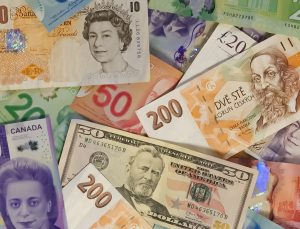Forex trading has become increasingly popular over the years with more and more people trying their hand at it. It’s a vast market with trillions of dollars being traded every day. Forex brokers are the intermediaries between traders and the market. They provide the trading platform, tools, and resources needed for traders to execute their trades. But how do forex brokers make money? This article will delve into the various ways forex brokers generate revenue.
Spread
The most common way forex brokers make money is through the spread. The spread is the difference between the buy and sell price of a currency pair. Forex brokers quote two prices for each currency pair, the bid price, and the ask price. The bid price is the price at which the broker is willing to buy the currency pair, and the ask price is the price at which the broker is willing to sell the currency pair. The difference between these two prices is the spread. The spread is usually measured in pips, which is the smallest unit of measurement in forex trading.
Forex brokers earn money by widening the spread. For example, if the market spread for EUR/USD is 1 pip, the broker may quote a spread of 2 pips. This means that the broker earns 1 pip for every trade executed by the trader. The wider the spread, the more money the broker earns. However, some brokers offer tight spreads to attract more traders.
Commissions
Some forex brokers charge commissions on trades instead of widening the spread. This means that traders pay a fixed fee for every trade executed. The commission fee is usually a percentage of the trade value or a fixed amount per lot traded. For example, a broker may charge a commission of $7 per lot traded. This means that if a trader opens a position of 1 lot, they will pay a commission of $7 to the broker.
Commissions are a transparent way for brokers to earn money. Traders know exactly how much they’re paying for each trade executed. However, some traders may prefer brokers that offer zero commissions, especially for those who trade frequently.
Overnight fees
Forex brokers may also charge overnight fees or swaps. This is the fee charged for holding a position overnight. Forex trading is a 24-hour market, and traders can hold their positions overnight. However, holding a position overnight incurs a cost, as the broker has to borrow the currency being traded to execute the trade. The overnight fee is the cost of borrowing the currency.
Overnight fees are usually charged on a daily basis and are based on the interest rate differential between the two currencies being traded. If the interest rate of the currency being bought is higher than the interest rate of the currency being sold, the trader will receive a credit. If the interest rate of the currency being bought is lower than the interest rate of the currency being sold, the trader will pay a debit.
Inactivity fees
Forex brokers may charge inactivity fees for traders who don’t trade for a specific period. This fee is charged to traders who have inactive accounts. Inactivity fees can be a fixed amount or a percentage of the account balance. This fee is charged to cover the cost of maintaining the account.
Conclusion
Forex brokers generate revenue through the spread, commissions, overnight fees, and inactivity fees. It’s important for traders to understand how their brokers make money so they can make informed decisions about their trading. Traders should choose brokers that offer transparent pricing and competitive fees. Forex trading is a high-risk activity, and traders should only trade with money they can afford to lose.






